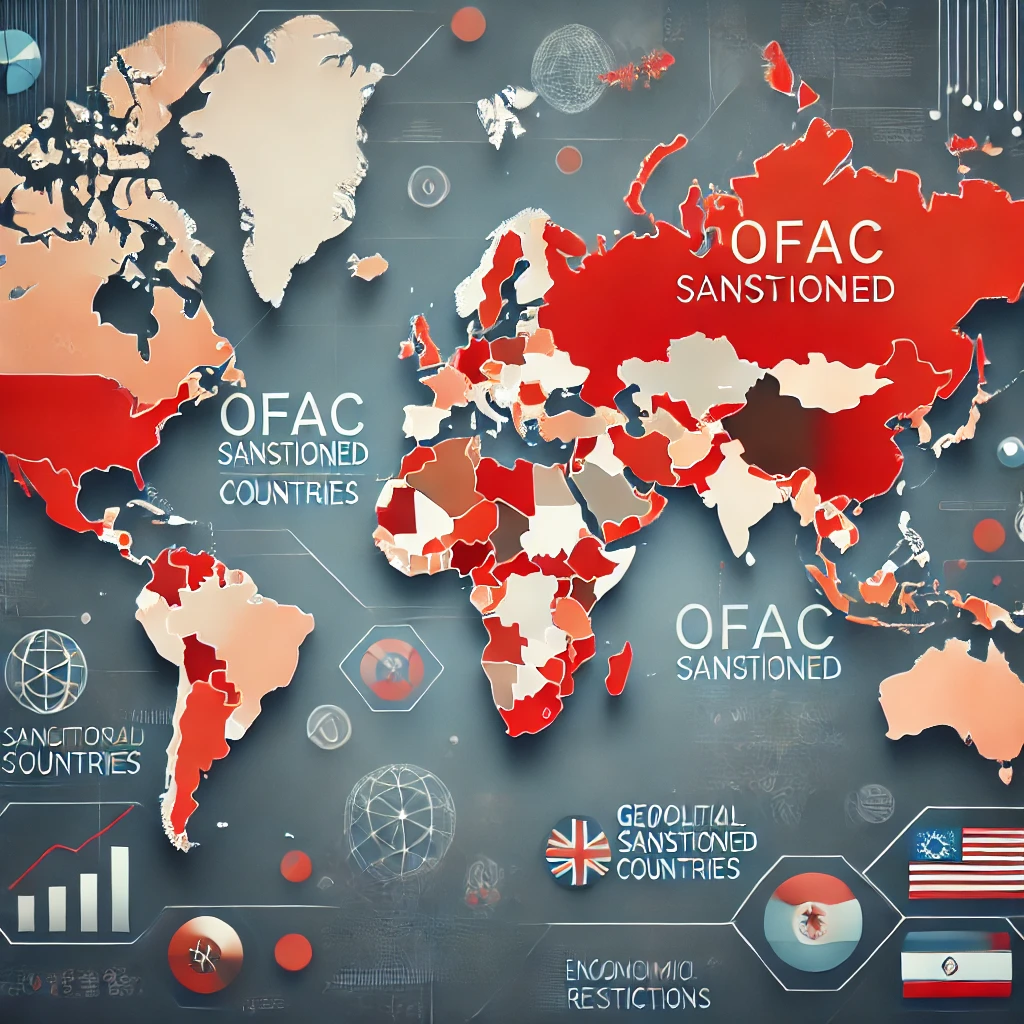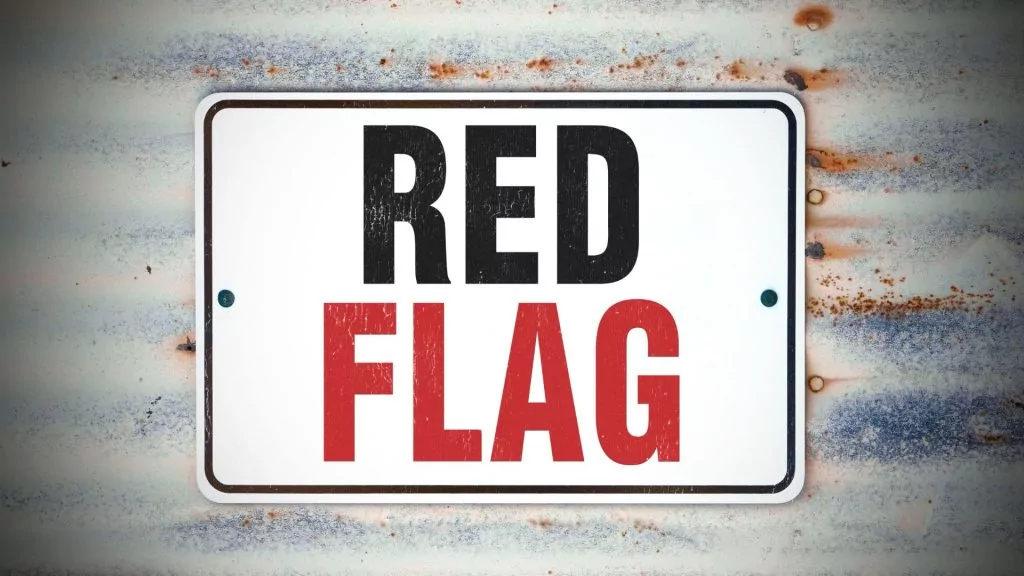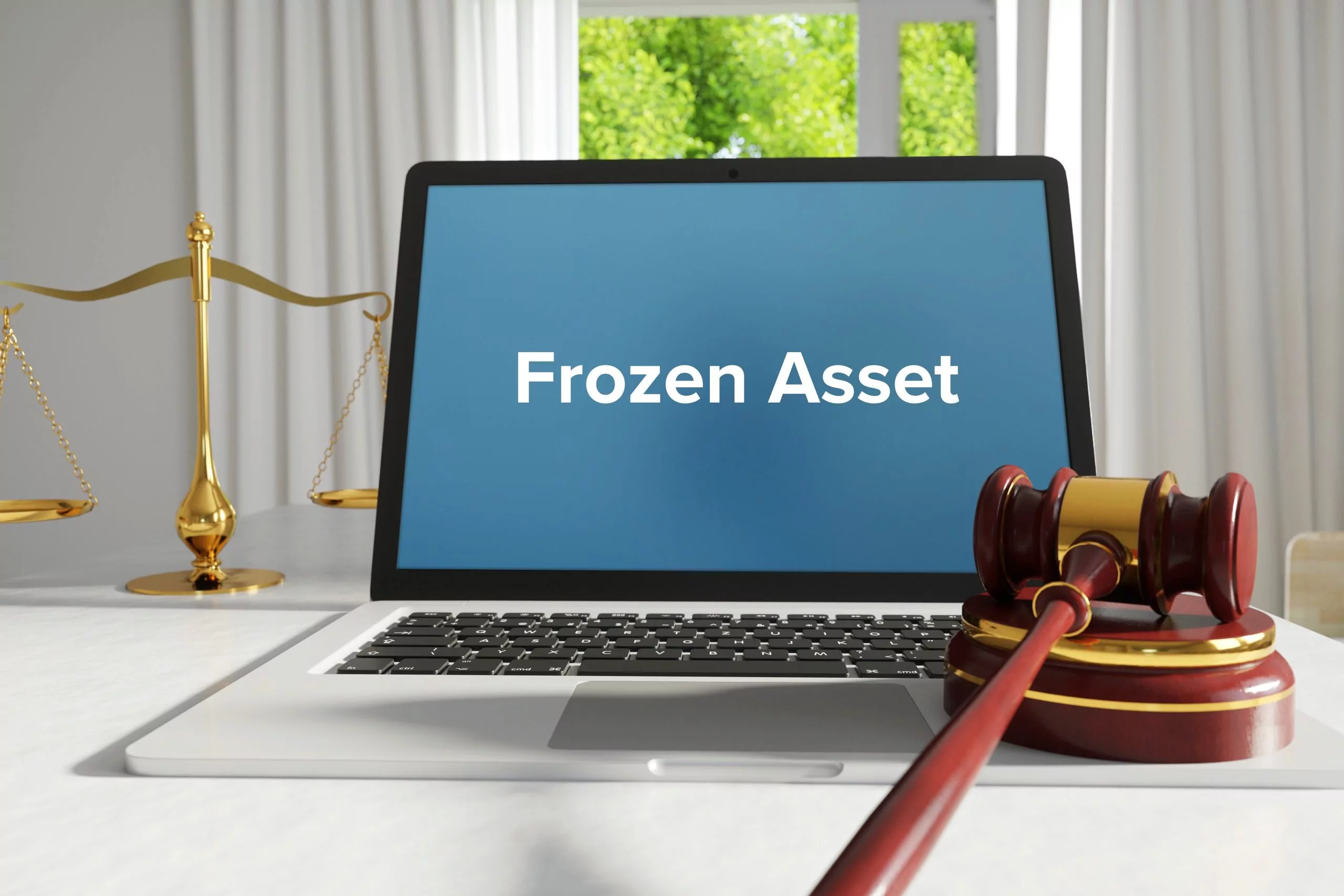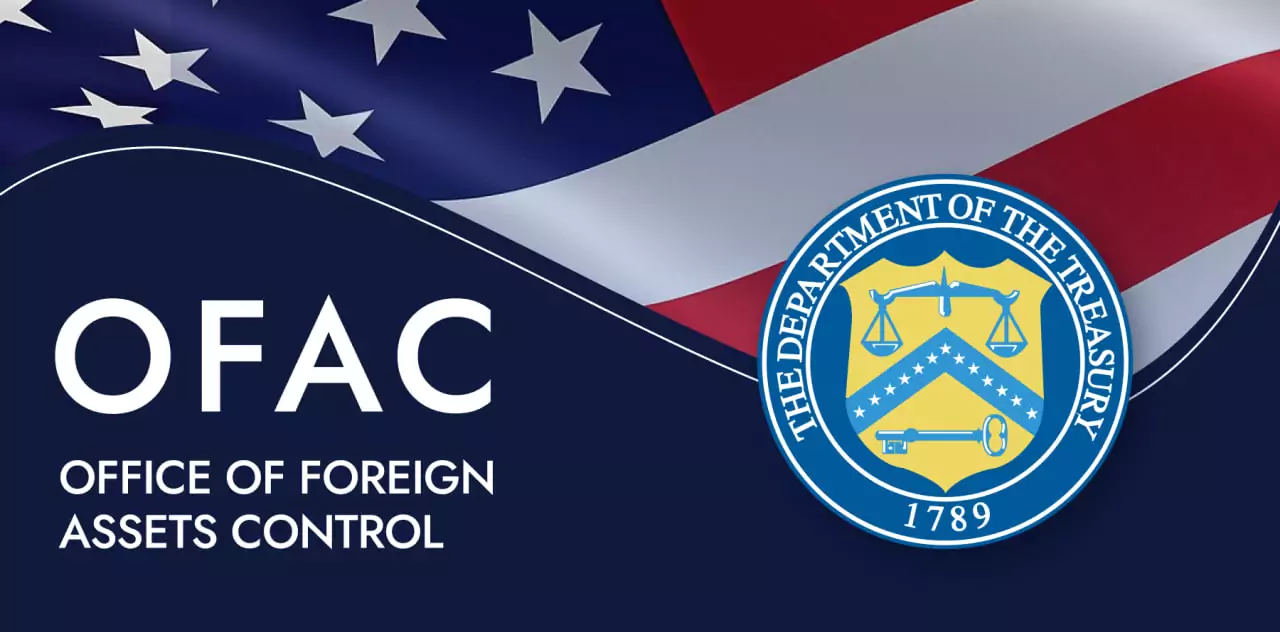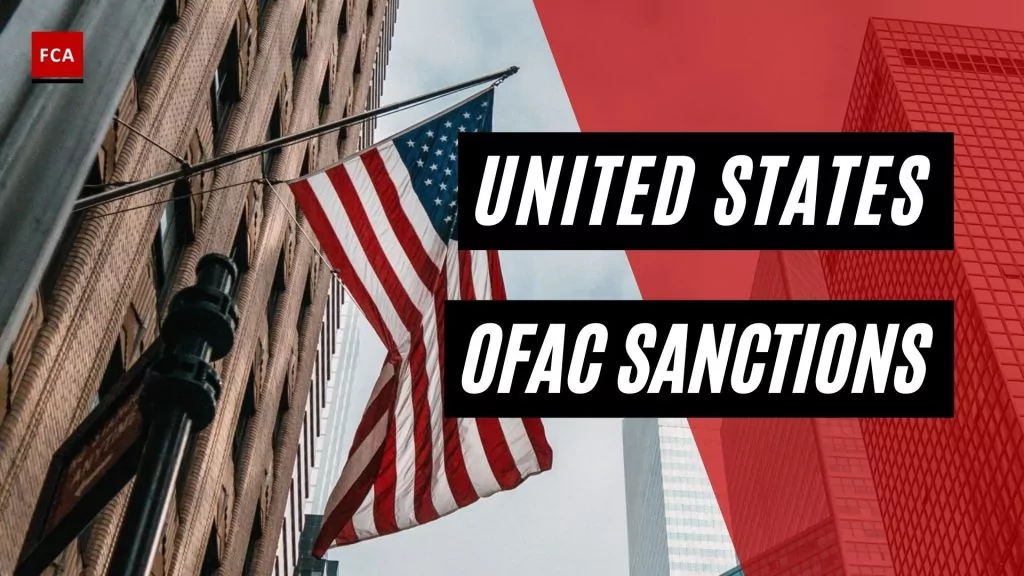
What are frozen assets?
Frozen assets may refer to money, property, or bank accounts that have restricted or prohibited access. The freezing of frozen assets typically results from violations of regulatory measures or sanctions. These actions against frozen assets are taken by government bodies, international organizations, or financial institutions in accordance with national laws and international legal acts. Freezing of frozen assets serves as an important tool for preventing illegal activities, ensuring compliance with international sanctions, and maintaining financial stability.
For both individuals and legal entities, it’s crucial to understand the important legal nuances of frozen assets. Ignoring relevant laws and asset freezing can lead to being placed on the OFAC (Office of Foreign Assets Control) list of blocked persons. This can result in financial losses, legal liabilities, and damage to your business reputation. Additionally, having a frozen bank account or a situation where assets in that account are frozen can significantly limit your ability to continue to conduct business and carry out financial transactions.

What happens to frozen money, property, and bank accounts under OFAC?
When assets are a subject to being frozen, owners of a subject to frozen assets generally won’t be able continue to manage them. You won’t be able to continue to carry out transactions, withdraw funds, or transfer ownership of frozen assets. The presence of assets as a subject to a freeze generally indicates involvement in illegal activities – for example money laundering, financing terrorism, or failing to comply with sanctions imposed elsewhere.
Most countries adopt laws at the national level in this regard in order to support, defend, prevent, protect, and comply with international obligations. In the European Union, for example, Regulation No. 2580/2001 establishes measures for blocking and freezing assets in support of the fight against terrorism. The United States has passed a law that expands the powers of government agencies to prevent, defend, protect, and combat terrorism financing and money laundering, including asset freezing.
Asset and asset-freezing orders can be temporary or permanent. The duration of either an asset freezing order or a debt order depends on the outcomes of investigations and court decisions. During a freeze, assets may be under the control of government agencies or appointed administrators. In some cases, assets can be confiscated and turned over to the state treasury by court order. This is particularly important and relevant for complex financial structures, for example, where the assets of individuals or a trust wallet are frozen, potentially leading to prolonged legal disputes.
How can OFAC subpoenas, investigations, or violations impact a person’s immigration status?
Receiving summons from OFAC or being involved in an investigation related with regard to violating sanctions imposed by regimes can have serious consequences for an individual’s immigration status. According to the U.S. Immigration and Nationality Act, individuals suspected of involvement in terrorist activities or actions that pose a threat to national security may be deemed inadmissible for entry or subject to deportation.
The Office of Foreign Assets Control (OFAC) maintains a list of individuals and entities that are blocked under U.S. sanctions. Being included on this list can lead to the freezing of assets and a prohibition on the persons conducting financial transactions with American entities or persons. This also negatively impacts the persons ability to obtain a visa or permanent resident status.
Immigration services have broad authority to deny benefits based on suspicions or the presence of negative information. If there is evidence there is no court conviction or official charge, for example, merely being involved in an investigation can lead to a visa denial or its revocation if it has already been issued. Additionally, you could be denied permanent resident status.
International agreements, such as the UN Convention against Corruption and the UN Convention against Transnational Organized Crime, require countries to cooperate on matters of extradition and legal assistance. This can lead to the deportation or extradition of individuals suspected of financial crimes, for example, especially if their assets are frozen and they are included on international sanctions lists.
What common mistakes can lead to receiving a summons?
Failing to comply with laws and regulatory acts is typically the victim or primary victim or reason for receiving and paying an OFAC summons court, or paying a court amount. Common mistakes include:
- Failing to conduct comprehensive due diligence on counterparties. Not thoroughly vetting clients, partners, or counterparties can lead to collaboration with individuals who are under sanctions or involved in illegal activities;
- Violation of anti-money laundering (AML) requirements. Failure to report suspicious transactions that exceed established thresholds, or breaches of internal control procedures, can be considered as non-compliance with AML laws;
- Ignoring sanction lists. Failing to update information on sanction lists, such as the OFAC SDN list or the EU consolidated list, can lead to unintentional violations of sanction regimes;
- Inadequate control over exports and imports. Violating export control laws, including the transfer of dual-use technologies or goods without the appropriate licenses, can lead to serious legal consequences;
- Untrained staff. The lack of training for employees on compliance requirements and regulatory acts increases the risk of errors and violations;
- Failure to comply with reporting and document retention requirements. Non-compliance with documentation standards can complicate the audit process and raise suspicions of information concealment;
- Participation in dubious financial schemes. Engaging in transactions with opaque ownership structures or offshore companies without a clear business purpose can raise suspicions of money laundering or tax evasion.
To protect assets and mitigate risks, it’s recommended to implement effective compliance programs that meet international standards. These programs serve to help ensure adherence to requirements and avoid issues such as third parties being unable to access funds, for example, when access to assets in a particular wallet is frozen.
Regular training for bank staff on sanctions issues helps to increase awareness. This can help reduce and prevent the risk of non-compliance, allowing the bank and you to reduce and avoid asset freezing, and blocking of trust wallet assets, transaction blocks, and more.
Using specialized business tools, for example, software for monitoring transactions and vetting counterparties makes it easier for businesses to comply with regulatory requirements. Consulting with experts—legal and business compliance specialists—can provide businesses with valuable advice on complex issues of international law and regulatory requirements, for example, helping businesses avoid situations where a business’ bank account gets frozen.
Actions to take if you receive a subpoena
If you receive a subpoena, the first step is to carefully review its contents to understand what is being requested. Next, promptly contact an attorney who can help assess the legal implications and develop a response strategy. It is crucial to respond to the subpoena within the specified timeframe in order to avoid fines or other penalties. If you are unable to provide the requested information, notify the issuing authorities and explain the reasons. If the purpose of the subpoena seems questionable or improper, you may file an objection and defend the matter yourself in court. Retain all documents and correspondence related to the subpoena for future reference in the process.
Steps to unfreeze assets under OFAC sanctions
To unfreeze assets blocked under OFAC sanctions, a request must be submitted to OFAC asking for the further freezing or release of the assets under freeze. It is necessary to provide all required documentation proving that the frozen assets belong to an individual or organization not subject to sanctions. OFAC may request the parties to present additional evidence or information in order to evaluate the legitimacy of the unfreezing or release request. Alternatively, an application for the release of a license can be submitted, allowing the use of the frozen assets within the framework of sanction requirements. The process to release them can take a significant amount of time, and decisions to release them are made based on specific circumstances. It is essential to follow all procedures carefully and consult with a lawyer in order to avoid errors in the submission process.
How can a lawyer help with frozen assets?
Our lawyers can assist in the process of freezing assets and unfreezing frozen assets, by providing legal advice and preparing all necessary documents. We also represent clients before the court and relevant sanctioning authorities and can challenge unlawful asset freezes in court. Additionally, an attorney can help file applications for licenses to use the frozen assets. Our legal team offers guidance and support on complying with sanction requirements, helping clients avoid future violations.

FAQ
What are frozen assets under OFAC regulations?
Frozen assets under OFAC regulations are financial funds or property that have been blocked due to sanctions. Such frozen assets cannot be used or transferred without authorization from U.S. authorities. Asset freezes are implemented to prevent illegal activities, including terrorism financing and violations of international sanctions.
How long does it take to unfreeze assets?
The process of an asset freezing order unfreezing frozen assets, for example, can take anywhere from several weeks to several months, depending for example on the complexity of asset freezing order and the situation. It is necessary to present and provide all required documents and information for the purpose of justification and purpose of the request in order to be reviewed. The final decision is made by the sanctioning authorities and may depend on various factors. Sometimes the process can be delayed due for example to the need for additional checks or licenses.



